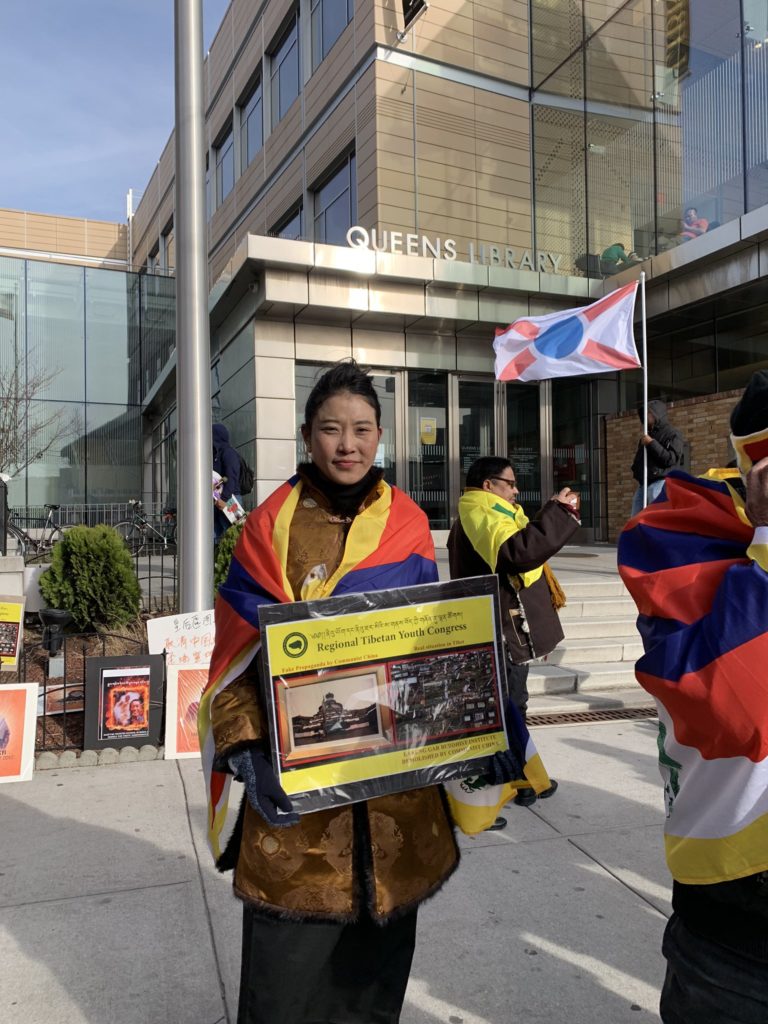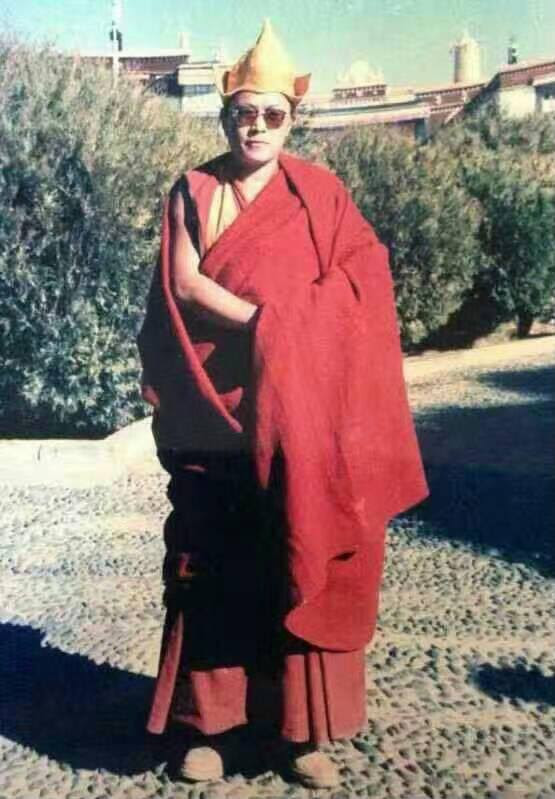A personal essay written by Nyima Lhamo, former Tibetan Political Prisoner:
I was 12-years-old the last time I saw my uncle, Tenzin Delek Rinpoche, alive and well. The next time I saw him, in July 2015, his soul had already left this earth and his body was mutilated and marred. An esteemed spiritual leader and hero to many, Rinpoche’s only purpose in life was to serve his people and country – Tibet. He truly embodied the Buddhist principle of compassion for nature and humanity: he stopped Chinese “development” projects which would have destroyed Tibet’s environment, and even brokered peace between Tibetan and Chinese people living in his community by acting as a mediator when there were squabbles and disagreements. So when I learned of Rinpoche’s death, the profound sadness I experienced was not only because I had just lost a beloved uncle, but also because I felt Tibet had just lost one of our greatest advocates and leaders.
At that time, I had no idea what my future would entail. I didn’t know that my mother and I would be detained for weeks. And I definitely didn’t know that I would eventually flee the land and country which I love with all my heart. However, despite my personal ties in Tibet, I left out of a greater call to action. I felt compelled to leave because I wanted to make change to the injustices I saw around me in Tibet, and knew I could only do so by leaving.
My advocacy journey began in earnest after arriving in India. There, I learned of Students for a Free Tibet (SFT) and of all the advocacy they did for Rinpoche. SFT’s former Executive Directors, Lhadon and Tendor, introduced me to the Tibetan Freedom Movement in exile and Dorjee Tseten, who was SFT’s Asia Director at the time, encouraged me to stay strong and continue my advocacy.
I remember one of my first speaking tours with SFT. I was so nervous about conveying my message articulately to the non-Tibetans in the audience. DoTseten helped me share my story and even reminded me to place equal emphasis on sharing my message from inside Tibet with the Tibetans in exile. After all, he reminded me, my uncle’s story and message of hope and perseverance should be first and foremost for the Tibetan people.
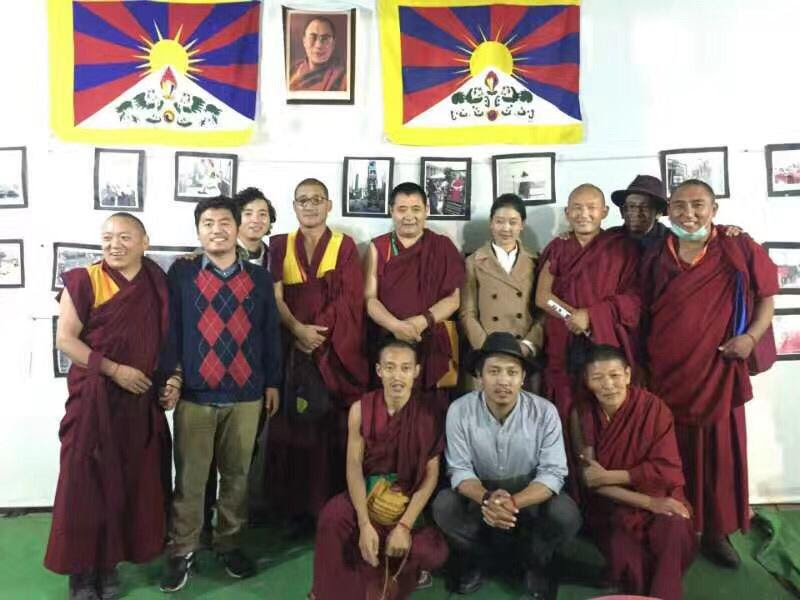
Nyima Lhamo with SFT staff and monks in Dharamsala.
In the past several years since my initial speaking tour with SFT, I have had the opportunity to share my uncle’s story on many important platforms, including the United Nations and the White House. While I am grateful for the opportunity, I still feel as though there is so much more we must do to truly bring justice to my uncle and to the millions of Tibetans currently inside Tibet living under Chinese occupation. I came to the realization that in order to engage in a higher level of advocacy, I would also need a higher level of education and training around UN mechanisms and human rights advocacy. When SFT and the Tibet Advocacy Coalition invited me to take part in an intensive UN training, I immediately knew it would be an immensely valuable experience.
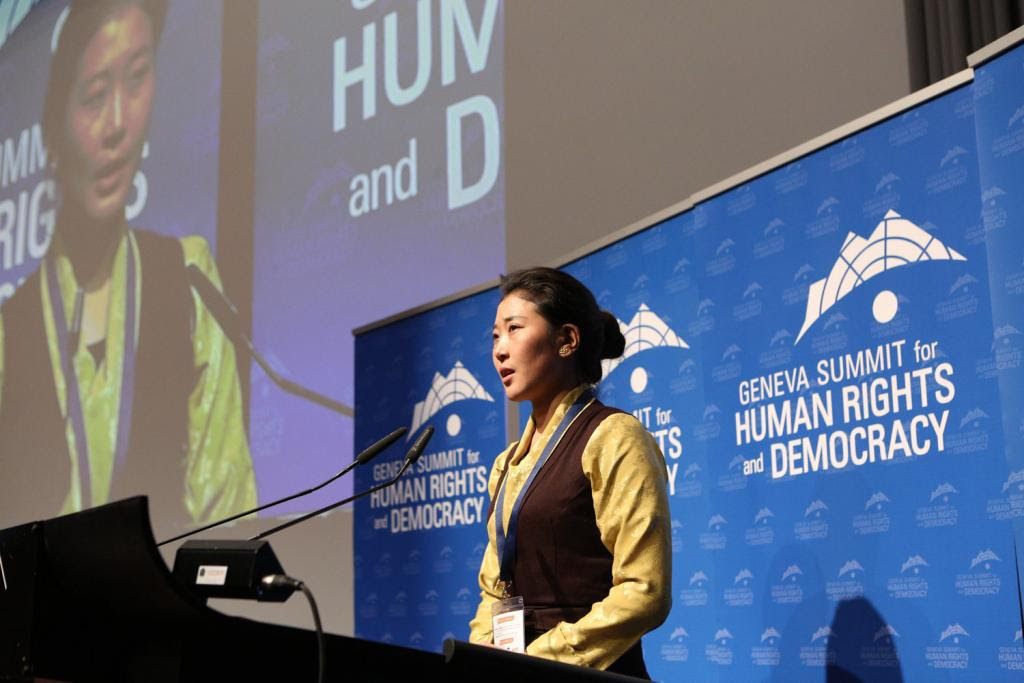
Growing up in Tibet, I understood that the UN was an important international institution, one in which we, Tibetans inside Tibet, place significant hope. Many Tibetans, including myself, believe that the UN can be an important force in the fight to return His Holiness the 14th Dalai Lama back to his rightful place in Lhasa. Therefore it is vital for us Tibetans to utilize the UN as a tool in our struggle for freedom.
Through these UN trainings, I’ve come to understand the institutional nuances of this massive multilateral institution: that resolutions don’t get passed overnight and that collaboration is a necessary precursor of meaningful change. I see the UN as a critical medium for advocacy that our movement for freedom needs to leverage.
In Tibet there is nowhere we Tibetans can turn to when we face oppression under Chinese rule. Despite China’s claims of equal protection under the law, there are separate and superficial legal avenues specifically for Tibetans which are ingenuine and do not address our oppression. One needs only to look at the self-immolations, which among many things, can be understood as demonstrations of the severe persecution and injustice that Tibetans inside Tibet face.
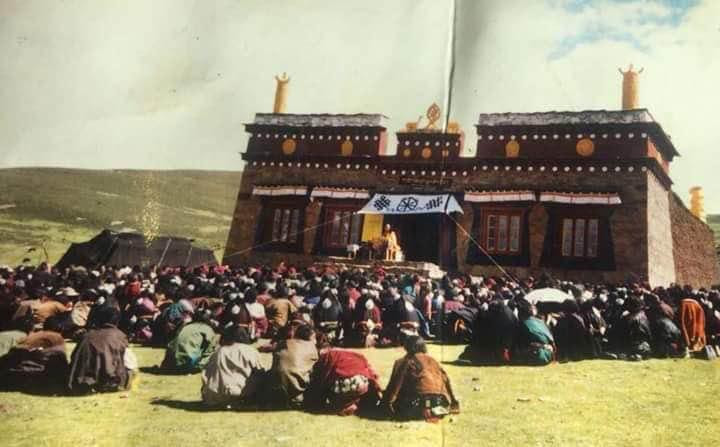
Tenzin Delek Rinpoche giving teachings in Tibet.
The UN’s mission is to maintain international peace and security. It is the body responsible for advocating for those facing injustices, exactly like those which are occurring in Tibet. The UN must show the world that human rights accountability applies to all nations, including China. So in this light, the UN is the most appropriate institution which can affect positive change in Tibet. I plan on continuing my work with Students for a Free Tibet in my advocacy both at the UN and on the streets through grassroots activism. We have made great progress, but the road ahead is still long!
Tibetans inside Tibet have continued to resist Chinese occupation at devastating costs to their own lives and safety; they fight and sacrifice everything to protect our collective Tibetan culture and way of life. I promise to do my best to amplify their voices in exile, and I hope you all will join me. Thank you to everyone for your enduring support; my journey—SFT’s journey—at the United Nations wouldn’t be possible without the contributions of countless supporters around the world like you.

